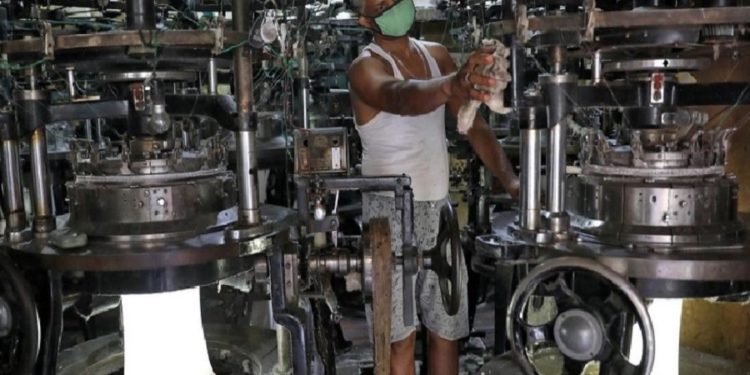NE BUSINESS BUREAU
MUMBAI, APRIL 22
To support banks and credit institutions to better understand and manage the change in the risk composition of micro, small and medium enterprise (MSME) portfolios, TransUnion CIBIL on Wednesday launched the enhanced CIBIL MSME Rank (CMR). The solution now scores entities that have an aggregate credit exposure of fewer than ₹10 lakhs- this in addition to the MSMEs that are in the aggregate credit exposure segment of ₹10 lakhs to ₹50 crores from the earlier version of the CMR, says a release.

CMR is a credit risk solution that uses machine learning algorithms to predict the probability of an MSME becoming an NPA in the next 12 months. CMR assigns a ranking on a scale of one to ten to the MSME based on its credit history data. CMR-1 is assigned to the least risky MSME and CMR-10 to the riskiest MSME. The higher the CMR, the greater the risk of NPA associated with the MSME.
Enabling greater economic opportunities for 55 lakh very small businesses
Currently in India, total lending to MSMEs with an aggregate credit exposure up to ₹50 crores, is estimated at ₹17.94 lakh crores and represents ~28% of commercial credit outstanding. The total on-balance sheet commercial credit exposure stands at ₹64.04 lakh crores in India. The very small micro-vertical (less than ₹10 Lakhs aggregate exposure) of the MSME segment, grew by 4.7% over one year starting Dec’18 to Dec’19 and comprises 55 lakh very small business entities having ₹ 93 thousand crores in loan balances.
In these unprecedented times, driving easy access to credit for MSMEs, while controlling the quality of commercial portfolios, is one of the topmost priorities for banks and credit institutions.
Speaking about the solution, the Managing Director and CEO of TransUnion CIBIL, Rajesh Kumar, said, “The ongoing COVID-19 pandemic poses new challenges to businesses, especially for micro-enterprises, who are often more vulnerable to sudden changes in the economic environment. We are committed to working closely with banks and credit institutions to support them in adjusting their MSME lending policy decisions and also align with the regulator and the government by providing insights for increasing reach and driving access to finance for the MSME segment.”
Fostering trust by providing a comprehensive picture of MSMEs
The NPA rate for MSMEs has increased continuously over the last few years to reach 12.6% as of Dec 2019. The number of MSMEs falling in the highest risk bracket of CMR-7 to CMR-10 have outstanding credit balances of ₹232 thousand crores, which is at a higher risk of going into NPA.
Speaking on the benefits that enhanced CMR brings for MSMEs, Mohammad Mustafa, Chairman, and Managing Director, SIDBI said, “Enhanced CIBIL MSME Rank comes at a very crucial time and could help fuel the economy by providing access to financial opportunities for very small businesses. Banks and credit institutions need solutions that help them better understand the customers they serve and strike a balance between controlling risks and support businesses and the economy through these unprecedented times”.
Monitoring, controlling risks while refueling economy
Speaking on the benefits of enhanced CMR, Sanjiv Chadha, Managing Director and Chief Executive Officer, Bank of Baroda said, “We at Bank of Baroda, have astutely used CIBIL MSME Rank for driving risk-based pricing of loans, thus ensuring cheaper access to finance for deserving MSMEs. The enhanced CMR will add significant value to monitoring very small businesses. It will help in reducing turnaround time for acquisition of smaller MSME customers, rule-based bulk renewals, along with setting and monitoring of rank-based limit for portfolios.”
Echoing the added value of enhanced CMR, Pralay Mondal, Executive Director and Head of Retail Banking, Axis Bank said, “We wish to productively contribute to the rebuilding of our economy following the impact of COVID-19 by providing financial assistance to small businesses that are most vulnerable to these unprecedented crises. With enhanced CMR we are better positioned to identify and assess the potential of small businesses and drive faster access to credit for deserving MSMEs while closely monitoring and controlling risks across the complete MSME spectrum.”









